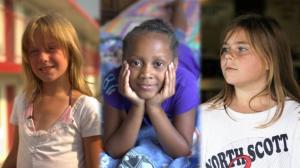Last fall, one of the required readings for my individual therapy course was a book entitled, Rosa Lee: A Mother and Her Family in Urban America by Leon Dash. The book is part biography and part investigative documentary, focusing on generational poverty and exploring the issues in the lives of the extremely poor . Leon Dash, a reporter for the Washington Post, spent several years interviewing her, spending time with her and her family, and investigating the history of the communities in which she lived. Over time, he went from an objective outside observer, eventually becoming a friend and confidante of his subject, Rosa Lee Cunningham. The book contains many, many individual stories, from the subjects’ perspectives (chapters are focused on Rosa Lee’s parents’, childhood, adulthood, her children, and her grandchildren), topics include: poverty, racism, illiteracy, prostitution, child abuse, misogyny, sexual abuse, physical abuse, homosexuality, incarceration, and methadone clinics. One of the most key topics in the book, is finding who or what exactly is at fault. The most important lesson that I took from this book was a better understanding was the web of bad circumstances, bad events, and bad decisions that are at the heart of cyclical poverty and crime. Book Discussion here.
The professor made a point to say why she had us read this book: reading/listening to others stories will increase our understanding of and empathy towards our clients, and will help us to better visualize the systems in which our clients exist.
Lately, I’ve found a couple websites I wanted to share, that deal with personal stories, or delve deeper into topics that our clients deal with daily.
StoryCorps is a website with soundbites of personal stories that vary from 3-7 minutes long. They also have a few cartoons to add visuals with the audio (Youtube). Each soundbite comes with a photograph and a brief summary. Funny, inspiring, and sad, these people’s voices will stay with you after the story ends.
Frontline on PBS is an investigate documentary show, many of which are free online to view. The episode Poor Kids, struck a cord with me. I grew up without much, knowing that I shouldn’t ask for things because I knew the answer would always be that we couldn’t afford it, but never have I had to experience the choice of either staying warm at night, or buying food. This show provides an excellent portrayal of poverty from a child’s perspective.
What things have you read or watched that delves into pressing social problems of today?


